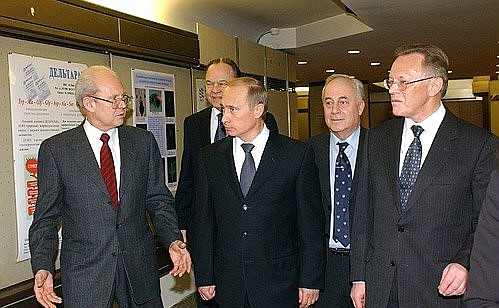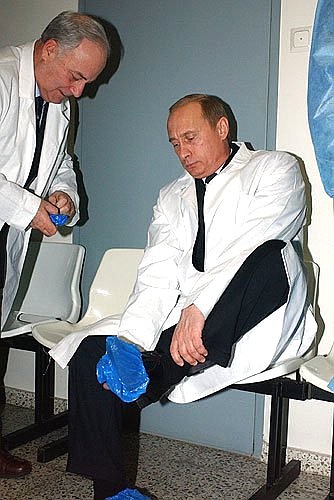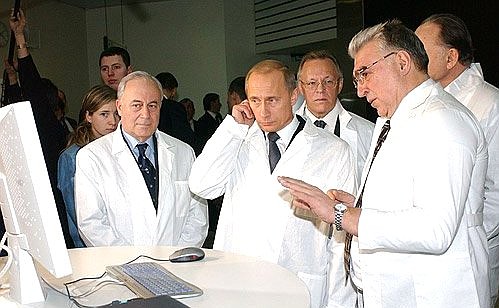President Putin inspected Russia’s only insulin-production unit at the Bio-Organic Chemistry Institute and inquired how long it took to master insulin production. He was told that the project had been ongoing for a decade prior to the allocation of money, and that it had taken just three years to set up the required production facility. President Putin walked through the Institute’s corridors and looked at displays.
Mr Putin was also shown other inventions by Russian scientists, namely, a biochip, which is a collection of miniaturised test sites (microarrays) involving DNA strands arranged on a solid substrate that permits many tests to be performed simultaneously, thus allowing higher throughput and speed. Biochips can diagnose specific health disorders in just a few hours, rather than months.
In 1959 two leading Soviet organic chemists, Mikhail Shemyakin and Yury Ovchinnikov, founders of Russian physical-chemical biology and biological engineering, established the Bio-Organic Chemistry Institute.
The Bio-Organic Chemistry Institute, now the largest national centre of physical-chemical biology, studies molecular mechanisms, vital processes and their practical applications in health care and agriculture.
One of the Institute’s most notable achievements of the past few years has been the creation of a genetically engineered insulin production process, making it possible to meet nationwide insulin demand. Production of Insuran-brand insulin preparations for treating type 1 and type 2 diabetes was launched in 2004.


